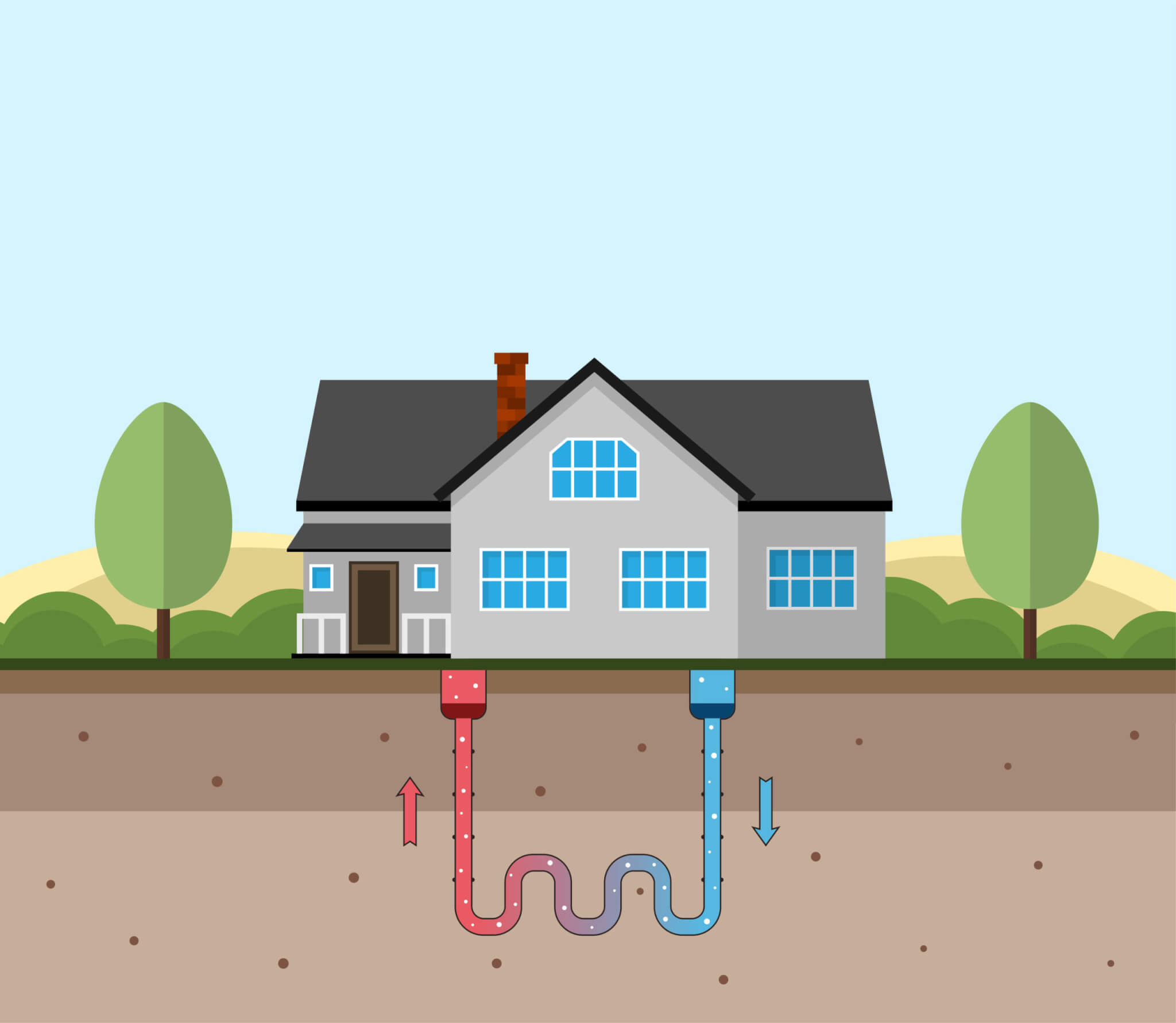GeoThermal

Geothermal Service
Homeowners here in the Seymour area are increasingly concerned with finding energy-efficient ways to decrease their home’s carbon footprint without compromising on functionality.
That is why Reliable Comfort Heating, Air Conditioning, & Plumbing proudly installs and maintains Carrier® geothermal heating and air conditioning systems.
“Carrier® geothermal systems can save you up to 70% on annual heating and cooling costs. And, a single heat pump can reduce greenhouse gas emissions by 11 metric tons over its average 20-year lifespan. That’s the equivalent of taking two cars off the road.” – Carrier®
MORE ABOUT GEOTHERMAL ENERGY
How Does Geothermal Energy Work?
‘Geothermal’ literally means ‘heat from the earth.’
Just below the earth’s surface (about 4-6 feet underground) lies a constant source of clean energy. Due to heat from the sun getting trapped in the soil, the earth remains at a relatively constant temperature of about 50°F to 70°F all year round. No matter the season, this consistent heat source can be used to heat and even cool a home.
How Does a Geothermal System Work?
By merely harnessing the natural heat from the earth, your home can stay at a comfortable temperature all year round, all the while, cutting down your utility bill.
A geothermal HVAC system uses electricity to pump water through a durable system of underground piping, also known as a ‘loop.’ While underground, this water absorbs the heat and brings it back to a heat exchanger, which extracts the heat and pumps it into your home.
For air conditioning, the opposite is done. The geothermal system will absorb the heat in your home and pump it into the ground to cool it down before returning it to the ductwork in your home.
This loop is highly efficient, wasting almost no energy. It ensures the temperature and humidity levels in your home remain at a consistent and comfortable level, no matter what the weather is like outside.
Advantages of Geothermal Energy
The Durability of Geothermal HVAC Systems
As opposed to traditional outdoor HVAC units, which are susceptible to weather extremes, geothermal HVAC systems are located indoors, ensuring protection from outdoor elements. That is one reason why these units have an impressively long life expectancy of 20 years or more, and often feature 10-year factory warranties on the parts.
The underground loop system is also made from extremely resilient, non-corrosive material that will never rot or rust.
Since geothermal HVAC units have relatively fewer parts and work more efficiently, they often require less maintenance than other HVAC systems.
Geothermal Heating and Air Conditioning Saves Energy and Money
When compared with HVAC systems that burn fossil fuels, a geothermal system can decrease your utility costs as well as your carbon footprint.
Geothermal heating and air conditioning systems have no flame, no fuel, no odors, no danger of carbon monoxide poisoning, and no noisy outdoor components. With our efficient systems, heating, air conditioning, and hot water are all attained from a single compact unit.
While savings vary from case to case, some homeowners have enjoyed up to 60% energy savings by using geothermal heating in their home as opposed to a traditional HVAC system. If your home is well insulated, you may experience a significant drop in your utility bill by installing a geothermal system. Over time, it can virtually pay for itself.
According to Energy Environmental, “Where a fossil fuel furnace may be 78-90 percent efficient, a geothermal heat pump is about 400 percent efficient”.
Yes, a geothermal HVAC system can do much to save not only in utilities but, more importantly, save the earth’s precious resources. Invest in renewable energy!
Disadvantages of Geothermal Energy
Since extensive excavation is involved in the installation process, geothermal HVAC systems are best suited for new construction. Still, retrofitting for preexisting structures is entirely possible. Reliable Comfort Inc. is more than ready to help in either case!
While no fossil fuels are burned using geothermal energy, a fair amount of electricity and water are still needed to operate the heating and air conditioning system. That being said, geothermal power remains the most efficient heating and air conditioning solution on the modern market and can handle any size building, from tiny homes to massive commercial construction.
If the underground piping sustains damage due to pests, tree roots, or somebody digging without realizing there are pipes in the ground, repairs can be pricey and challenging. Even so, the piping is manufactured from a special grade of polyethylene, designed to last over a century. The joints and fittings are thermally welded at super high temperatures to ensure ultra-strong connections and no leakage.
Geothermal Heat Pump Cost
While it’s true that geothermal HVAC units tend to cost more upfront than other HVAC systems, government tax incentives, as well as lower operating costs, may balance out the initial installation price and actually be less expensive in the long-run.
Some geothermal HVAC units even qualify homeowners to receive a federal tax credit of up to 30% on the total installed cost of the system.
Depending on which state you live in or your utility company, you may also receive a considerable rebate for installing a geothermal heating and air conditioning system in your home.
The total cost of installation varies largely based on the size of a home, the extent of excavation that must be done, what kind of unit is installed, and whether it’s new construction or a preexisting home. The cost ranges between $3,000 and $13,000, averaging about $8,000, according to national estimates. Of course, this depends mainly on the scope of the project.

